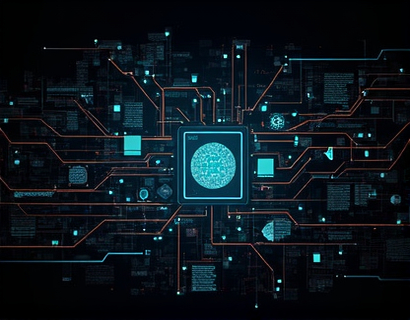Crypto and AI: Transforming User Experiences in the Blockchain Age
The intersection of cryptocurrency and artificial intelligence (AI) is revolutionizing the digital landscape, offering unprecedented opportunities for enhancing user experiences and redefining business operations. As we delve into the blockchain age, understanding how these technologies synergize is crucial for tech leaders aiming to stay ahead of the curve. This comprehensive guide explores the transformative impact of merging crypto and AI, providing insights into how these innovations are reshaping digital interactions and business strategies.
Understanding Cryptocurrency and AI
Cryptocurrency, a digital or virtual currency secured by cryptography, operates on decentralized networks like blockchain. It offers a secure, transparent, and tamper-proof method for transactions. On the other hand, AI involves the simulation of human intelligence processes by machines, particularly computer systems. These processes include learning (the acquisition of information and rules for using it), reasoning (using rules to reach approximate or definite conclusions), and self-correction. When combined, these technologies create powerful tools for innovation.
The Synergy of Crypto and AI
The integration of AI into cryptocurrency systems enhances security, efficiency, and user experience. AI algorithms can analyze vast amounts of data to detect patterns and anomalies, improving fraud detection and transaction verification processes. Smart contracts, self-executing contracts with the terms directly written into code, benefit from AI by automating complex decision-making processes, reducing the need for intermediaries, and increasing transaction speed and reliability.
Moreover, AI-driven analytics can provide deeper insights into market trends, helping investors make more informed decisions. Predictive models can forecast price movements, identify potential risks, and optimize portfolio management. This data-driven approach not only enhances investment strategies but also contributes to the overall stability and growth of cryptocurrency markets.
Enhancing User Experiences
The fusion of crypto and AI is particularly transformative for user experiences. Personalization is a key area where these technologies shine. AI algorithms can analyze user behavior and preferences to offer tailored recommendations, creating a more intuitive and user-friendly experience. For instance, a crypto exchange can use AI to suggest relevant assets based on a user's trading history and market conditions, simplifying the decision-making process.
Another significant benefit is improved customer support. AI-powered chatbots and virtual assistants can handle a wide range of inquiries, providing instant and accurate responses. These tools can operate 24/7, ensuring that user issues are addressed at any time, thereby enhancing satisfaction and loyalty. Additionally, AI can analyze user feedback and sentiment, enabling platforms to proactively address concerns and improve services.
Security and Trust
Security is paramount in the crypto space, and AI plays a crucial role in fortifying defenses. Machine learning models can detect and mitigate cyber threats in real-time, identifying suspicious activities and potential vulnerabilities. This proactive approach to security helps build trust among users, a critical factor for the adoption and success of cryptocurrency platforms.
Blockchain's inherent transparency and immutability are further enhanced by AI-driven auditing tools. These tools can continuously monitor transactions and smart contracts, ensuring compliance and integrity. This level of transparency not only reassures users but also attracts more participants to the ecosystem, fostering growth and innovation.
Business Operations and Efficiency
For businesses, the integration of crypto and AI offers significant advantages. Supply chain management, for example, can be optimized using blockchain for traceability and AI for predictive analytics. This combination ensures transparency, reduces fraud, and streamlines operations, leading to cost savings and increased efficiency. AI can also automate routine tasks, allowing businesses to focus on strategic initiatives and innovation.
In the realm of finance, AI-driven trading platforms can leverage cryptocurrency for faster and cheaper cross-border transactions. Smart contracts can automate complex financial processes, reducing the need for manual intervention and minimizing errors. This not only speeds up transactions but also lowers operational costs, making financial services more accessible and affordable.
Challenges and Considerations
While the potential benefits are substantial, there are challenges to consider. Regulatory uncertainty remains a significant hurdle for both crypto and AI technologies. Compliance with varying regulations across different jurisdictions can be complex, requiring careful navigation. Additionally, the ethical use of AI, particularly in data privacy and bias mitigation, is crucial to maintain user trust and avoid potential backlash.
Technical challenges also exist, such as the need for robust infrastructure to support AI-driven crypto applications. Scalability, interoperability, and security of blockchain networks are ongoing areas of development. Collaboration between tech companies, regulators, and the crypto community is essential to address these challenges and create a conducive environment for innovation.
Future Prospects
The future of crypto and AI is promising, with numerous emerging trends and applications on the horizon. Decentralized finance (DeFi) platforms are leveraging AI to create more sophisticated and accessible financial services. Non-fungible tokens (NFTs) combined with AI can lead to new forms of digital art and collectibles, offering unique ownership and authenticity verification. The integration of AI with Internet of Things (IoT) devices on the blockchain can enhance smart home and industrial automation systems, creating more intelligent and connected environments.
As these technologies continue to evolve, the potential for innovation is vast. Tech leaders must stay informed and adaptable, embracing the opportunities while addressing the challenges. By doing so, they can harness the power of crypto and AI to create transformative user experiences and drive business success in the blockchain age.



